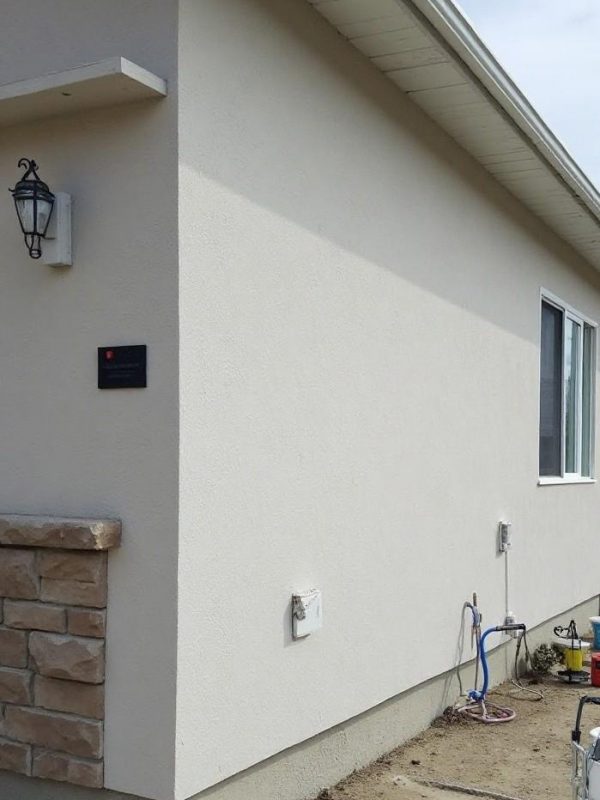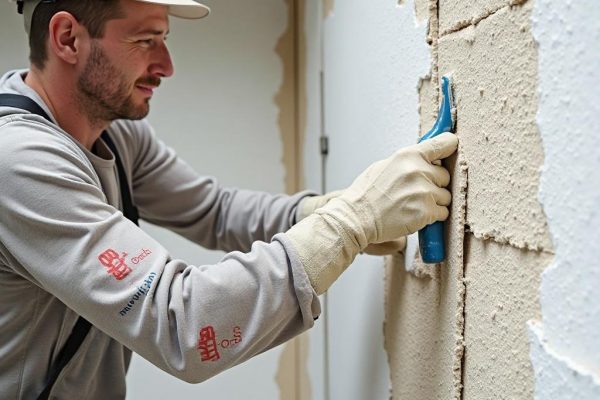
What Are The Three Types Of Masonry?
Masonry is an ancient construction method that has stood the test of time, providing strength and durability to buildings across the world. In Fort Saskatchewan, AB, Canada, understanding the different types of masonry can help homeowners make informed decisions about construction and masonry repairs. Whether you're building a new structure or maintaining an existing one, knowing your options is essential.
In this article, we will explore "What Are The Three Types Of Masonry?" and delve into their characteristics, benefits, and when to consider masonry repairs. With a friendly tone and clear explanations, let’s uncover the foundational elements of masonry.
What Are The Three Types Of Masonry?
When we talk about masonry, we primarily refer to three main types: brick masonry, block masonry, and stone masonry. Each type has its unique features and applications. Understanding these differences is crucial for anyone involved in construction or home repair.
1. Brick Masonry
Brick masonry is perhaps the most recognizable form of masonry. It involves laying bricks in a specific pattern using mortar to bind them together.
Characteristics of Brick Masonry
- Material: Bricks are typically made from clay or concrete.
- Durability: Brick is known for its strength and resistance to weathering.
- Aesthetic Appeal: The variety of colors and textures available makes brick attractive for both interior and exterior applications.
Benefits of Brick Masonry
- Energy Efficiency: Bricks have thermal mass properties that help regulate indoor temperatures.
- Low Maintenance: Once installed correctly, brick requires minimal upkeep.
- Fire Resistance: Brick does not burn, making it a safe choice for residential structures.
Common Applications
Brick masonry is often used in:
- Residential homes
- Commercial buildings
- Landscaping features
When considering brickwork in Fort Saskatchewan, it's essential to hire professionals who understand local climate challenges that could affect brick performance.
2. Block Masonry
Block masonry uses larger blocks—often concrete blocks—rather than traditional bricks. This method provides several advantages for specific construction scenarios.
Characteristics of Block Masonry
- Material: Concrete blocks are often hollow or solid and can be made in various sizes.
- Strength: Block walls can withstand significant loads due to their size and density.
Benefits of Block Masonry
- Cost-effective: Using fewer units reduces labor costs compared to brick.
- Speed of Installation: Larger blocks mean quicker assembly times.
- Versatility: Suitable for foundations, walls, and even decorative features.
Common Applications
Block masonry is frequently seen in:
- Foundations
- Retaining walls
- Commercial structures
For homeowners in Fort Saskatchewan looking at block repairs or installations, working with experienced contractors familiar with regional building codes ensures compliance with safety standards.
3. Stone Masonry
Stone masonry represents one of the oldest forms of building techniques still Depend Exteriors stucco contractor in Fort Saskatchewan used today. It relies on natural stone materials which add rustic charm to any structure.
Characteristics of Stone Masonry
- Material: Natural stones such as granite, limestone, or slate are common choices.
- Longevity: Properly maintained stone structures can last for centuries.
Benefits of Stone Masonry
- Natural Aesthetic: Stone provides unique visual appeal unmatched by other materials.
- Insulation Properties: Like brick, stone has excellent thermal mass which helps regulate temperature indoors.
Common Applications
Stone masonry finds its place in:

- Historic renovations
- High-end residential projects
- Decorative facades
In Fort Saskatchewan's diverse weather conditions, proper installation and ongoing maintenance services are vital for ensuring the longevity of stone structures.
Comparison Table of Masonry Types
| Type | Material | Durability | Aesthetic Appeal | Cost | |----------------|-----------------------|-----------------|------------------|---------------| | Brick | Clay/Concrete | High | Versatile | Moderate | | Block | Concrete | Very High | Functional | Low | | Stone | Natural Stone | Extremely High | Unique | High |
FAQs About Masonry
1. What type of masonry is best for my home?
The best type depends on your budget, aesthetic preferences, and structural needs. Brick offers versatility while block provides cost efficiency; stone adds elegance but may come at a higher price point.

2. How do I know if my masonry needs repairs?
Look for signs like cracks in the walls or mortar joints failing. Water damage shows that you might need immediate attention from specialists who handle masonry repairs.
3. Can I do my own masonry repairs?
While small projects might be DIY-friendly with some research, many repairs require professional expertise to ensure safety and durability.
4. How long does it take for masonry repairs?
The timeline varies depending on the extent of damage; minor repairs might take a few hours while major work could span several days or weeks.
5. Is stone masonry more expensive than other types?
Yes, generally speaking, stone tends to be more costly due to material prices and labor intensity involved in installation compared to brick or block alternatives.
6. Do I need permits for masonry work?
Yes! Most municipalities require permits for structural changes; always check local regulations before starting any project involving significant alterations.
Conclusion
Understanding "What Are The Three Types Of Masonry?" equips homeowners with valuable knowledge about construction methods relevant to their properties in Fort Saskatchewan, AB, Canada. Each type—brick, block, or stone—offers unique benefits suited to different project goals and budgets.
By keeping an eye on potential issues like cracks or water intrusion signs early on allows you to address potential problems before they escalate into costly issues requiring extensive masonry repairs later down the line! Always consult professional masons who can provide guidance tailored specifically towards your individual needs ensuring quality craftsmanship every step along way!
Explore your options carefully so you can enjoy all advantages that well-executed mason work brings while enhancing both functionality aesthetics around your home sweet home!